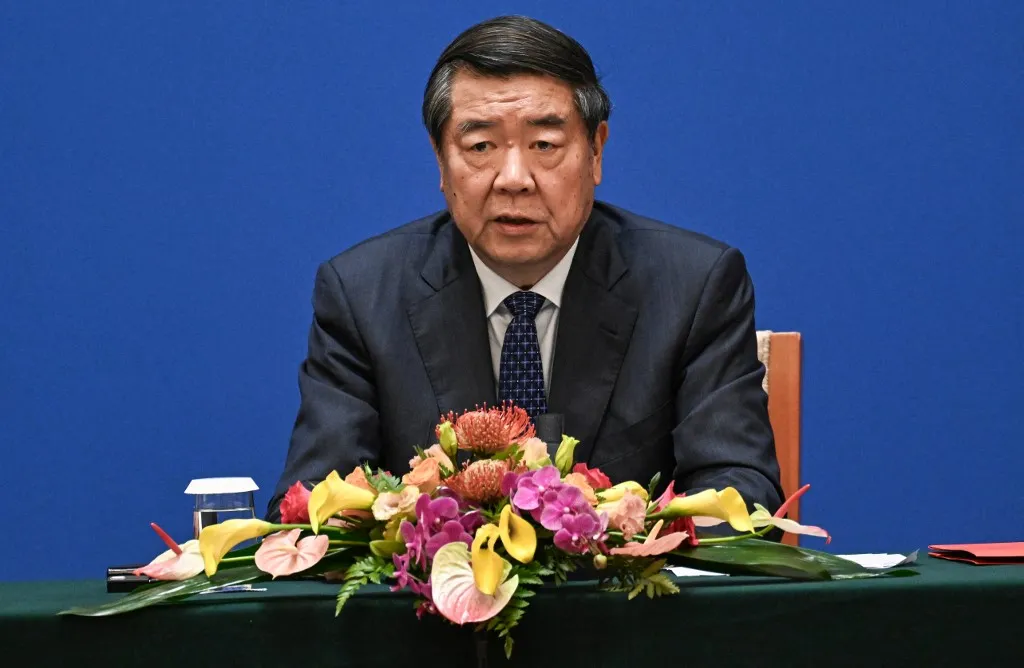China has approved a proposed G20 debt restructuring framework for debtor countries, the German finance minister has suggested, in a sign that Beijing is prepared to take a concessionary approach to African countries struggling under the burden of debt repayments.
On Sunday, after meeting Chinese vice premier He Lifeng (pictured above), Christian Linder said “we welcome the fact that the Chinese side is also committed to this [debt restructuring] in our Joint Statement, because solutions are inconceivable without China as such an important player in world politics.”
While no specific details have been put forward on what this restructuring may look like in practice, it is expected that China will drop its demand for losses to be shared around other creditor countries and financial institutions. This indicates that China, which is Africa’s biggest bilateral lender and held over $73bn of the continent’s debt in 2020, could be prepared to shoulder significant losses in a bid to help poorer countries overcome debt-related economic issues.
Several African countries – including Nigeria, Ethiopia, and Zambia – have been at risk of defaulting on their debt in recent years. The economic turbulence caused by the Covid-19 pandemic and its aftermath, sharp depreciations in the value of local currencies, and higher interest rates around the world have made it more difficult and expensive for African countries to service their dollar or yuan-denominated external debt.
Alex Vines, director of the Africa Programme at Chatham House in London, tells African Business that the development suggests Beijing is taking a more realistic approach to the issue of Africa’s debt burden.
“China is now the largest bilateral lender to the developing word and has finally accepted that, like others with bad debts, its companies will need to swallow losses,” he says.
Fikayo Akeredolu, a researcher in Sino-African political economics, adds that China’s apparent acceptance of the G20’s Common Framework “is a significant development in resolving Africa’s debt issues,” primarily because it suggests that Beijing is prepared to engage more with its G20 partners to try and find a resolution.
“The framework is the only multilateral mechanism for forgiving and restructuring sovereign debt,” she says.
“It aims to bring together the Paris Club and G20 official bilateral creditors in a coordinated process… China’s statement of support for the Common Framework is positive – the more countries and creditors that support efforts like this, the better.”
Vines notes that “moving away from a bilateral to a multilateral approach is key to finding a lasting solution.”
Common Framework is not enough
However, both Vines and Akeredolu are sceptical as to whether the Common Framework will be enough to settle the issue of debt restructuring for good.
Vines notes that progress has been slow and that new mechanisms have yet to yield results.
“The International Monetary Fund (IMF), World Bank, and the G20 created the Global Sovereign Debt Roundtable (GSDR) early this year to fix the Framework and speed up debt restructurings,” he says.
“This included reforming the Framework, such as the IMF promising to share more information earlier, particularly regarding debt sustainability, and to give struggling countries more concessional finance. In exchange, the hope is that China would stop lobbying for ‘preferred creditor status’ for its lenders and accept loan losses,” Vines explains.
“Debt negotiations are always painful – and the G20 Framework has been painful and slow – with no example of success yet.”
Akeredolu believes that, while the Common Framework is potentially a positive step for creditors, more action is required to empower African borrowers.
“The G20 Framework is not enough; many more measures are required,” she says.
“Right now, debtor countries are negotiating separately. African countries need to club together, taking loans together, and using each other’s growth prospects as collateral. The loan repayments would be small and with low interest to allow easy payment – while also sufficient to build in a ‘cushion’ for temporary collateral.
“There is a need for a ‘Paris Club’ for borrowers.”
Want to continue reading? Subscribe today.
You've read all your free articles for this month! Subscribe now to enjoy full access to our content.
Digital Monthly
£8.00 / month
Receive full unlimited access to our articles, opinions, podcasts and more.
Digital Yearly
£70.00 / year
Our best value offer - save £26 and gain access to all of our digital content for an entire year!

 Sign in with Google
Sign in with Google 



